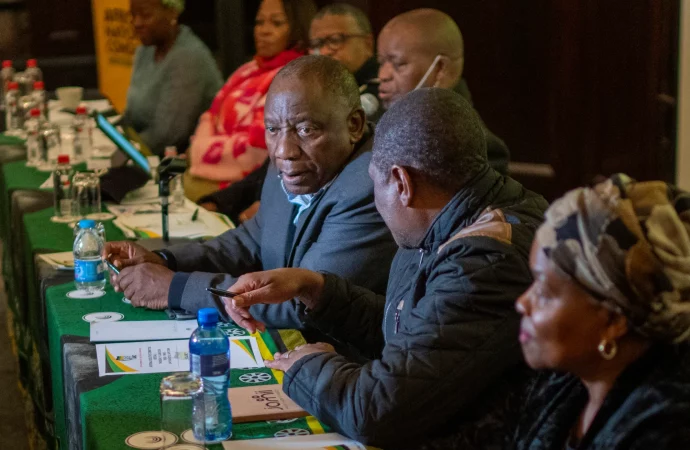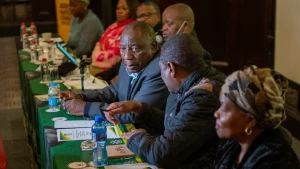South Africa’s political landscape has recently undergone a significant transformation with the formation of a coalition government. This development, while initially promising, has encountered its first major challenge, raising questions about the stability and effectiveness of the coalition arrangement. Background of Coalition Government The idea of a coalition government emerged in South Africa following the
South Africa’s political landscape has recently undergone a significant transformation with the formation of a coalition government. This development, while initially promising, has encountered its first major challenge, raising questions about the stability and effectiveness of the coalition arrangement.
Background of Coalition Government
The idea of a coalition government emerged in South Africa following the 2024 general elections, which resulted in a fragmented political landscape with no single party securing a clear majority. In response to this, several parties came together to form a coalition government, aiming to pool their resources and expertise to govern the country effectively.
Formation of the Coalition
The formation of the coalition government was hailed as a step towards political inclusivity and cooperation. It brought together parties with diverse ideologies and interests, promising a more representative approach to governance. Key players in the coalition include the African National Congress (ANC), the Democratic Alliance (DA), and the Economic Freedom Fighters (EFF), among others.
Early Hurdles Despite
the optimism surrounding its formation, the coalition government has encountered its first major hurdle in the form of ideological differences and power struggles among its members. The ANC, as the largest party in the coalition, has found itself at odds with smaller parties over key policy decisions and ministerial appointments. This internal friction has hindered the government’s ability to take decisive action on pressing issues, leading to concerns about its effectiveness and stability.
Impact of Ideological Differences
The clash of ideologies within South Africa’s coalition government has had profound implications for policy-making and governance. With each party advocating for its own vision of the country’s future, reaching consensus on key issues has become increasingly challenging. This ideological divide not only slows down the decision-making process but also undermines the coherence and effectiveness of government policies. Furthermore, it erodes public confidence in the coalition’s ability to deliver on its promises, potentially leading to disillusionment among voters.
Consequences of Power Struggles
The power struggles among coalition members have exacerbated existing tensions within the government, threatening its stability and cohesion. As parties jockey for influence and control, decision-making becomes mired in internal conflicts and competing agendas. This infighting not only distracts from the pressing issues facing the country but also undermines the legitimacy of the coalition government in the eyes of the public. Without a unified leadership and a clear chain of command, the government risks descending into chaos and gridlock.
Addressing Policy Gridlock
Overcoming policy gridlock is paramount to ensuring the effectiveness and legitimacy of South Africa’s coalition government. By prioritizing areas of common interest and focusing on incremental progress, coalition members can find common ground and move forward on key policy initiatives. This may require compromise and flexibility from all parties involved, as well as a willingness to set aside partisan differences for the greater good. Additionally, establishing clear decision-making mechanisms and strengthening leadership within the coalition can help streamline the policymaking process and prevent gridlock from derailing the government’s agenda.
Analysis of Challenges
The challenges facing South Africa’s coalition government stem from the inherent complexities of governing through consensus among diverse political entities. Each party in the coalition brings its own agenda and priorities to the table, making it difficult to reach consensus on crucial matters. Moreover, the power dynamics within the coalition are constantly shifting, further complicating decision-making processes.
Comparative Analysis Table
| Challenges | Impact | Possible Solutions |
|---|---|---|
| Ideological Differences | Delayed policies | Facilitate dialogue and compromise among coalition partners |
| Power Struggles | Political instability | Strengthen leadership and establish clear decision-making mechanisms |
| Policy Gridlock | Government paralysis | Prioritize areas of common interest and focus on incremental progress |
Conclusion
The early hurdles faced by South Africa’s coalition government underscore the complexities of governing through consensus in a multi-party system. While the coalition arrangement holds promise for fostering inclusivity and cooperation, overcoming internal challenges will be essential to ensure its long-term success. By addressing ideological differences, power struggles, and policy gridlock, the coalition government can build a foundation for effective governance and deliver on its promises to the people of South Africa.

















